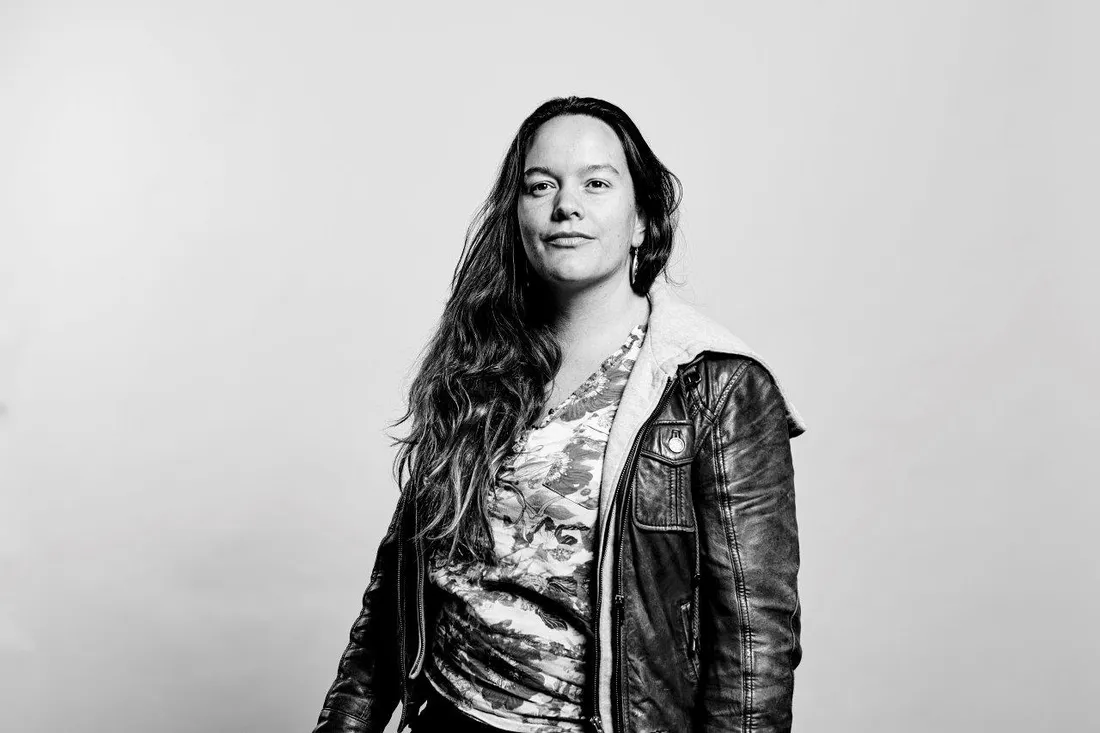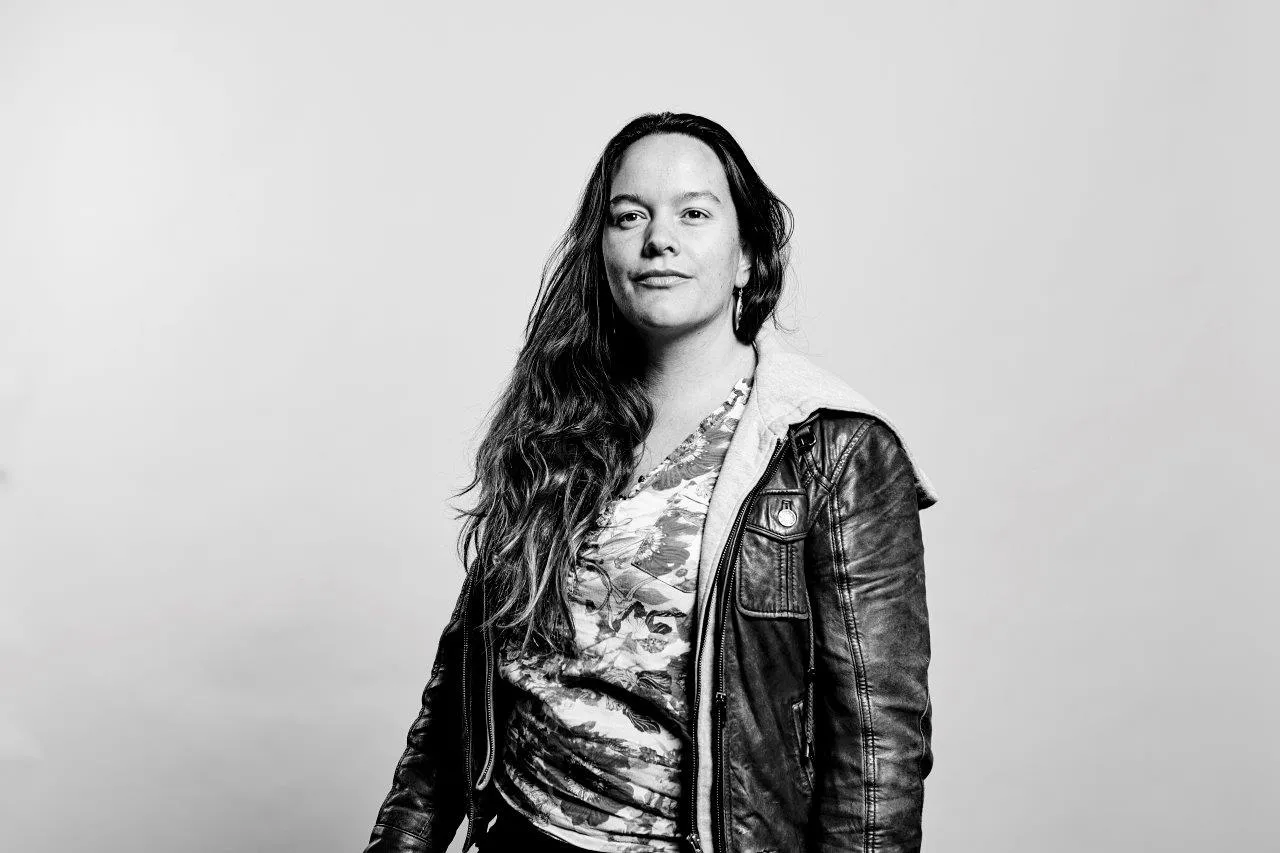Amber Curreen: Changing the narrative
Written by


Parker Palmer once said, “The more you know about another person’s story, the less possible it is to see that person as your enemy.” What this quote says to me is that the more diverse, wild and complex stories we tell in the world, the better we will be at understanding each other. He goes on, “when two people discover that parallel experiences led them to contrary conclusions, they are more likely to hold their differences respectfully.” The act of sharing experiences builds bridges, vital structures of understanding, across cultural and social boundaries.
Here is the story of Amber Curreen, Creative Producer at Te Rēhia Theatre Company and one of the founders of Te Pou Theatre, the Auckland home of Māori theatre. Te Pou offers a commanding voice in the arts that simultaneously exposes and rejects the unconscious assumptions that place Pākehā theatre as ‘the norm’, therefore relegating anything created outside of that dominant culture as ‘the other’. Te Pou lays down the challenge to us to be honest and ask ourselves whose voices do we consistently raise, and whose stories are we failing to tell.
In the midst of organising this year’s Koanga Festival, Amber reveals the true nature behind her work at Te Pou.
---

"For me, it starts with the reo. When I look around now, we’re in a place in the development of the language where everything that you do can make a difference. Everything is significant and can make a difference in turning the tide on what’s happening with our reo and with our culture. It all contributes to the flourishing, the reclamation of a Māori worldview and its place in Aotearoa.
It’s an interesting time to be working.
In New Zealand, we don’t acknowledge that ‘the norm’ or the established ways of doing things is the British way. We don’t question whether that is actually a norm at all. Being a white New Zealander is very, very much not normal within the context of the whole world!
You see it when we talk about celebrating diversity. It becomes about celebrating diverse from the norm. A genuine celebration of diversity needs to celebrate what Pākehā New Zealand is in terms of being diverse just as much as everything else. They need to own that cultural lens and heritage.
As my friend, Greens Candidate, Julie Zhu, once said: The problem is not an underrepresentation of diverse peoples, it’s an over representation of Pākehā voice.
In the arts, we continue to be exposed to a view of the world from the perspective of middle New Zealand, which is just so different from the way in which I perceive the world. I am constantly coming up against ways of perceiving the world and people that are just so far removed from my own viewpoint, and the viewpoint of a lot of people I work with in the arts.
In many ways our work at Te Pou is a response to the representation of Māori across different media. There is a huge difference in perception of what the situation is for Māori and Pākehā, of what progression looks like and the current social realities. For us, it is about finding a way through the arts to bridge those two perspectives, to offer a new viewpoint. And also, to provide alternative ways that Māori can perceive themselves that it is informed by that.
---
I grew up on Waiheke. My father is Māori from up north, Ngāpuhi, and my mother is Pākehā. My father was raised with the mindset that being Māori was a bad thing. My mother remembers going to a tangi that was held at a church where ‘the Māori’ mourners were held off with a shotgun at the entrance to the cemetery.
This year, my father passed away. He was the eldest of nine kids, and not a single cousin of mine has any interest in their Māori heritage. We’re descended from people who very early on were calling their children Elizabeth, Jane and Mary. The connection to our Māori heritage was quite successfully stamped out in our family.
But it was also held in some small ways. There was always a hangi put down at any big occasion, and we never wore shoes inside. Waita would be sung when drunk in the garage, and the roles of people in the family were the same as you would find in other whānau.
When I was young, my mother encouraged me to go into the bilingual unit in my third form. It was the first year that it was offered at my kura. It all starts with language. It was through learning te reo that I learned everything else. The language is the river through which all the matauranga Māori flows.
For me, learning te reo opened my eyes to what I didn’t have growing up. I’m often a bit jealous of all my other friends who have grown up on the marae and have a big big whānau. They know things that I don't.
I was brought up in quite a Pākehā world, surrounded by commonplace ideas about the place of Māori in our society. I’m aware when I’m at the supermarket with my two little brown tamariki and they’re not wearing shoes. Instinctively I want them to put shoes on, because if there are brown kids in a supermarket not wearing shows, the assumption is that you’re poor. Whereas Pākehā kids with raggedy clothes wearing no shoes are probably considered to be the innocent children of hippies, Māori kids without shoes represent poverty. Always, you represent a whole people at one time.
I understand those perceptions, and I know a lot of people who hold those ideas. I feel lucky to have experienced different ways of perceiving New Zealand and perceiving Māori and Pākehā relations.
---
There is so much to be learned from a Māori worldview. It has so much to offer people in our predominantly British informed social norms. You see people come together and no one knows how to start or finish things, how to acknowledge and bring people together so they connect. There are no tools available to cut through all the bullshit and provide space to acknowledge anything that is vaguely spiritual in anyway.
I’m quite a pragmatic person, but in terms of any kind of acknowledgement of any energies that exist between people, there is something missing from the tool belt for Pākehā that has been inherited from a secular British way of doing things.
This comes across in the arts as well.
In the arts we’ve created our own tools to help us engage, connect and come together, but I think that New Zealand Pākehā are in a unique position where they have right here on their doorstep all the knowledge of ngā tangata Māori - how to treat each other and level as human to human in a way that really works to create art and hold people together.
That’s what we’re doing with Te Pou. We try to bring a tikanga Māori based way of making and sharing theatre. People walk into the space at Te Pou and they feel at home. It’s still professional, but it feels like home. There is casualness, and the priority is people. People can come into this space and have a professional experience and also engage emotionally. Person to person.
We are working off the shoulders of the people who have been making Māori theatre over the last decade, and building on that history created by the stalwarts of the industry.
Carrying on their work is really important.
This is our third year running the Koanga Festival. Don Selwyn mounted the first of these festivals in 1990, partly as a way to have a time outside of Matariki where Māori were being featured. There is a danger of our work being siloed into Matariki. I’m really excited about all the events that happened over this Matariki, but we still need to make sure that there are other times of the year that Māori works have a focus.
The Kō is a digging instrument. Spring is a time for digging and preparing the ground. For us at Te Pou, it’s a time for preparing the fertile ground of Māori theatre in Tāmaki Makaurau. We have four new plays being developed, and a debut season from an experienced playwright.
It’s also about the development of our audience. For young people we have our whānau day this Sunday, which is a huge big day of storytelling and shows and trying to engage our young ones in story. Particularly with this generation we want to instil a sense of kanohi-to-kanohi - to create a physical experience that can be transformational. The amount of face-to-face experience is decreasing as they do everything through their screens. Hopefully we’re instilling the value of live art, of live interaction.
We have a house full of Māori artists over these three weeks and it’s super exciting. A lot of hectic creativity filling up the space.
My journey around tikanga Māori is one of constant learning. A place that I am always learning and striving. I have a good degree of fluency, but I still have so much more to learn. That’s a constant journey for me. I am trying to find a way within this art form to offer an insight into different ways of thinking. And it all starts with the language."
---
The Kōanga Festival runs from Friday 1 – Sunday 17 September
Whakarongo Mai – Playwright Development Readings
Wednesday 6 & 13 September, 6.30pm
Readings of the works developed in the Kōanga Festival programme with local and international dramaturg work shopping. Double Bill performances with two new works on show each night. Join us for a kai and korero as we celebrate these new Māori playwrights $10, Tickets available from www.iticket.co.nz
Peter Paka Paratene – A night of story, song and verse with Rawiri Paratene
Thursday 7 – Saturday 9 September, 7.30pm
Ask me anything. Join Rawiri Paratene for the premiere of his first solo show as he shares yarns, poetry, and song (some of his own, others of his choosing) in a whimsical and insightful but ever joyous performance.
$20 – 25, Tickets available from www.iticket.co.nz
Whānau Day
Sunday 10 September, 10am – 4pm
A fun filled day celebrating storytelling from around the globe with theatre performances, story readings, face painting, market stalls, children’s games and competitions. Nau mai haere mai! Check out www.tepoutheatre.nz for the full schedule.
Free event

Amber Curreen is an ART Venture 2016 participant - an initiative of Arts Regional Trust Te Taumata Toi-a-iwi (ART) with delivery partners The Big Idea.
Te Pou - The Auckland Home of Māori Theatre